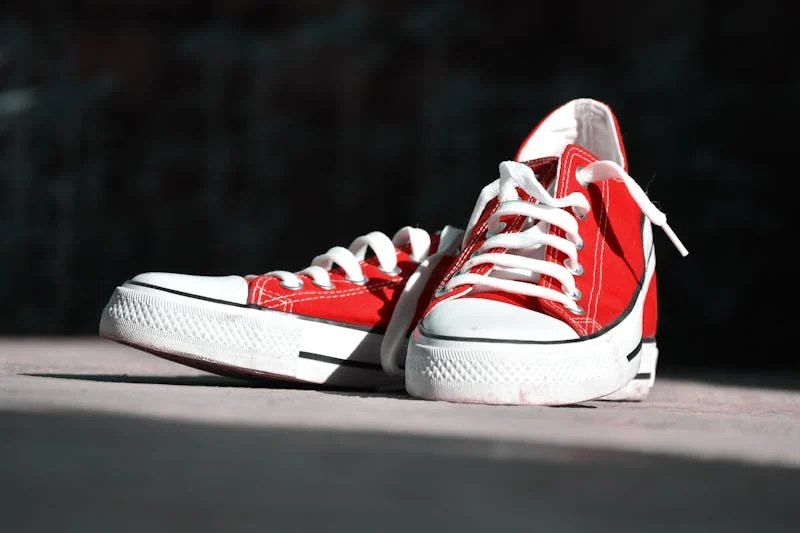Introduction
Hey there! Have you ever wondered about the weight of different types of shoes? Or how much do shoes weigh?
Well, you’re in the right place! In this article, we will dive deep into the world of shoe weights.
From lightweight running shoes to heavy-duty work boots, we will explore the various factors that influence the weight of shoes.
So, sit back, relax, and let’s get started on this journey to answer the burning question – How Much Do Shoes Weigh?
Factors Affecting Shoe Weight
When it comes to the weight of shoes, several factors come into play.
Let’s take a look at some of the key elements that can influence how heavy or light a pair of shoes is:
1. Shoe Size
The size of the shoe is one of the most significant factors that determine its weight.
Generally, larger sizes tend to be heavier than smaller sizes due to the additional materials used in the construction of the shoe.
2. Material
The type of material used in the shoe’s construction plays a crucial role in its weight.
For example, shoes made of heavier materials like leather or metal will naturally weigh more than those made of lighter materials like mesh or synthetic fabrics.
3. Design
The design of the shoe can also impact its weight.
Shoes with extra padding, support, or features like steel toes will be heavier than minimalist shoes with a simpler design.
4. Purpose
The intended purpose of the shoe can determine its weight as well.
For example, running shoes are typically lighter to enhance speed and agility, while work boots are heavier to provide durability and protection.
5. Sole
The thickness and material of the sole can significantly affect the weight of the shoe.
Shoes with thicker soles or added cushioning will be heavier than those with thinner, more lightweight soles.
6. Brand
Different brands have varying standards when it comes to shoe construction and materials.
Some brands may prioritize lightweight designs, while others focus on durability and support, resulting in heavier shoes.

Average Weight of Different Types of Shoes
Now that we’ve covered the factors that can influence shoe weight let’s dive into the average weights of different types of shoes:
1. Running Shoes
Running shoes are designed to be lightweight to help enhance performance and reduce fatigue.
On average, a pair of running shoes can weigh anywhere from 7 to 10 ounces (0.44 to 0.63 pounds) per shoe.
2. Basketball Shoes
Basketball shoes are built to provide support and stability during quick movements on the court.
They tend to be slightly heavier than running shoes, with an average weight of 12 to 16 ounces (0.75 to 1 pound) per shoe.
3. Hiking Boots Weight
Hiking boots are designed to withstand rugged terrain and provide ample support to the wearer.
Due to their durable construction and added features, hiking boots can weigh anywhere from 2 to 4 pounds per pair.
4. Sandals
Sandals are typically the lightest type of footwear, thanks to their minimalistic design.
On average, a pair of sandals can weigh anywhere from 6 to 10 ounces (0.38 to 0.63 pounds).
5. Dress Shoes
Dress shoes are generally made from leather or other heavy materials to achieve a sophisticated look.
As a result, they tend to be heavier, with an average weight of 1 to 2 pounds per pair.
6. Work Boots
Work boots are among the heaviest types of shoes due to their durable construction and added safety features.
A pair of work boots can weigh anywhere from 4 to 7 pounds, depending on the brand and design.
7. Flip Flops
Flip flops are another lightweight option for footwear, perfect for casual wear in warm weather.
A pair of flip flops typically weighs around 5 to 7 ounces (0.31 to 0.44 pounds).
8. Cleats
Cleats, designed for sports like soccer, football, or baseball, are specialized shoes with cleats on the sole for traction.
The weight of cleats can vary, with soccer cleats weighing around 7 to 9 ounces and football cleats ranging from 14 to 19 ounces.
9. Ballet Flats
Ballet flats are known for their lightweight and flexible design, making them a comfortable choice for everyday wear.
On average, a pair of ballet flats weighs about 5 to 9 ounces.
Why Does Shoe Weight Matter?
You might be wondering, why does the weight of shoes even matter?
Well, the weight of your shoes can have a significant impact on your comfort, performance, and overall well-being.
Here are a few reasons why shoe weight matters:
1. Comfort
The lighter the shoes, the more comfortable they tend to be, especially if you’re on your feet all day or engaging in physical activities.
Heavy shoes can cause fatigue, discomfort, and even lead to potential foot problems.
2. Performance
For athletes and sports enthusiasts, shoe weight can directly impact performance.
Lightweight shoes can help improve speed, agility, and endurance, giving you a competitive edge in your chosen sport.
3. Injury Prevention
Wearing heavy shoes that don’t provide adequate support or cushioning can increase the risk of injuries like sprains, strains, and stress fractures.
Opting for lighter, more supportive shoes can help prevent such injuries.
4. Daily Activities
Whether you’re walking, standing, or running errands, the weight of your shoes can influence how you feel throughout the day.
Lighter shoes are more conducive to everyday activities and can help reduce strain on your feet and legs.
5. Travel
When traveling, every ounce counts, especially if you’re walking long distances or exploring a new city.
Lightweight shoes can make a significant difference in your comfort and enjoyment during your travels.

Tips to Reduce Shoe Weight
If you’re looking to lighten the load on your feet, here are some tips to help reduce the weight of your shoes:
1. Choose Lightweight Materials
Opt for shoes made from lightweight materials like mesh, knit, or synthetic fabrics.
These materials are not only breathable and comfortable but also help reduce the overall weight of the shoe.
2. Look for Minimalist Designs
Consider shoes with a minimalist design that eliminates unnecessary bulk and padding.
Minimalist shoes are lightweight, flexible, and mimic the natural shape and movement of the foot.
3. Explore Innovative Technologies
Many shoe brands incorporate innovative technologies like air cushions, foam midsoles, or carbon fiber plates to reduce weight without compromising on support or performance.
Look for shoes that utilize these advanced features.
4. Consider Purpose
Choose shoes that are specifically designed for your intended activity.
For example, if you’re a runner, opt for lightweight running shoes, or if you work in a rugged environment, invest in durable yet lightweight work boots.
5. Check the Weight
Before purchasing a new pair of shoes, check the weight of each shoe to ensure it meets your preference for lightweight footwear.
Compare different models and brands to find the lightest option that still provides the support you need.
6. Proper Fit
Ensure your shoes fit correctly to avoid any unnecessary weight from movement or rubbing.
A snug yet comfortable fit will help reduce fatigue and prevent injuries caused by ill-fitting footwear.
FAQs (Frequently Asked Questions)
1. How Much Do Men’s Shoes Weigh?
On average, men’s shoes tend to weigh slightly more than women’s shoes due to larger sizes and wider fits.
The weight of men’s shoes can vary depending on the type and style, ranging from lightweight sneakers at around 0.44 to 0.63 pounds to heavier work boots at 4 to 7 pounds per pair.
2. Do Steel Toe Boots Weigh More?
Yes, steel toe boots are heavier than regular work boots due to the added steel cap in the toe box for protection.
The steel toe adds weight to the front of the boot, making them heavier and sometimes less comfortable for extended wear.
3. Why Do Some Shoes Weigh More Than Others?
Shoes can be heavier than others due to a combination of factors such as materials, design, construction, and added features.
Shoes made from heavier materials like leather or with extra padding and support will naturally weigh more than lighter, minimalist shoes.
4. Do Lighter Shoes Last Longer?
Not necessarily.
The durability of shoes is more dependent on the quality of materials and construction rather than weight alone.
While lighter shoes may feel more comfortable and agile, they may not always be as durable as heavier, more robust shoes designed for longevity.
5. How Can I Tell If Shoes Are Too Heavy?
If your feet, legs, or back feel fatigued or achy after wearing your shoes for extended periods, they may be too heavy for your comfort.
Pay attention to any discomfort, blisters, or strains that may indicate the shoes are too heavy and not offering adequate support.
6. Do High Heels Weigh More Than Flats?
In general, high heels tend to be heavier than flat shoes due to the added height and construction of the heel.
The materials used in high heels, such as wood, plastic, or metal, can add substantial weight compared to the lighter, more streamlined design of flats.
Conclusion
In conclusion, the weight of shoes can vary significantly depending on factors like size, material, design, and purpose.
Understanding how these elements influence shoe weight can help you make informed decisions when choosing the right footwear for your needs.
Whether you prioritize comfort, performance, or style, finding the perfect balance of weight and support is key to enjoying every step you take.
So, the next time you slip on a pair of shoes, take a moment to appreciate the thought and effort that goes into creating the perfect fit for your feet.
Remember, it’s not just about how much shoes weigh, but how they make you feel with every stride you take.



